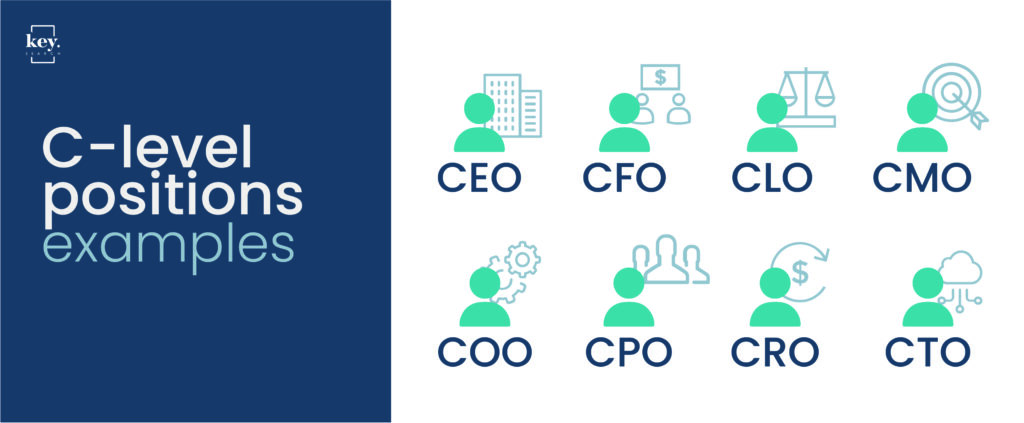The process of hiring the correct executive for a leadership position is often harrowing, time-consuming, and exhaustive. Depending on the size of a business, these searches can last months or even years. The number of incredibly talented executives is small, and recruiting them away from their current positions is difficult. The use of private executive recruitment firms is often the best answer.
As pointed out by executive recruiting guru Jennifer Rettig, there are several hurdles that plague searches for executive leaders, including:
- Leaders, as a matter of course, do not apply for jobs; they must be found
- Even executives currently in a leadership position are not necessarily good leaders for your business, hence, the need for a defined search
- The executive recruiting process takes considerable time away from other duties; therefore, utilizing an executive search firm is often the best time and money-saving solution
- Proven executives are often satisfied with their current situation making it difficult to lure proven leaders to a new business
Contents

Definition of Executive Recruiting
Executive recruiting takes place when a business requires a leader for a given department or section. Executive leaders are a rare commodity, and each is aware of the qualities of others in their small community. Most recruiting takes place through networks already formed within the business. Using such established networks often yields the leader a business needs to move forward.
Leaders who have survived and thrived in the brutal pipeline that leads toward executive positions exhibit character. They have learned the value of communication, delegation, and problem solving and use that knowledge to benefit the business and its employees.
Executive Positions and Their Differences
There are six executive positions for which one corporation or another is always searching. Small startups may get by with the founder wearing all hats for a limited time, but eventually, these positions will require filling.
-
Chief Executive Officer (CEO)
The CEO is responsible for developing and maintaining a plan guiding the business into the future. Though their main responsibility is to hire, monitor, or redirect the central executive force, the CEO is also responsible for making the final decision on the management of corporate assets. These executives are the face of the company, often appearing for media interviews.
-
Chief Operating Officer (COO)
The COO is responsible for the day-to-day operations of the business. A good COO understands the role of each of their subordinates, coordinates those working on their team, and focuses considerable energy on the business’ role in the general society.
-
Chief Financial Officer (CFO)
The CFO is, of course, concerned with the financial operations of the business. Their duties revolve around profitability. A CFO allocates funds to those areas where the most profit exists, including the best clients to service, whether to rent or purchase, the products that provide the best return on investment.
-
Chief Marketing Officer (CMO)
The CMO develops, implements, and maintains a business’ marketing strategy. They must be able to weight the advantages of developing a market in an emerging niche and weigh those advantages against the company’s existing presence in other marketing areas.
-
Chief Technology Officer (CTO)
The CTO is responsible for the development and implementation of all technological advances. These executives must stay abreast of current and developing technologies and introduce those developments in the form of hardware and software into the company’s ranks.
-
President
The President of a business usually acts as a backstop for the CEO and COO. Often the President picks up roles like Human Resource management, daily finance operations, or the implementation of a CEO’s strategy in the lower ranks, allowing the CEO and COO to concentrate on the areas that require the most attention day-to-day.

Different Methods to Search for Executives
Essentially, there are three methods available for a business to use to search for an executive to fill or develop an open position:
- Internal promotion
- Using internal personnel to search outside the business
- Hiring an executive search firm.
Internal Promotion
There are several advantages to promoting from within:
- The candidates are invested in the success of the business
- The candidates are part of the culture that exists within the business
- They are looking for advancement and are hungry to move upward
Two disadvantages are that they are untested, and they are invested in the status quo. A business seeking to advance in the marketplace often needs an injection of new vision and energy.
Searches Outside the Business by Internal Personnel
Using internal personnel to search outside the business has its advantages and disadvantages as well. These searches are conducted by executives who are intensely aware of the competition. They know the type of executive they want to fill the open position. They are mindful of possible cultural changes within the business. The disadvantage of using these already busy executives is the extra burden placed on them. Added pressures considered outside their purview interfere with the day-to-day operation of the business. They are also inclined to dismiss candidates with which they have personal issues.
Qualifications and Skills that Make Great Executive Leaders
Outside search firms have several advantages in searching for executives. Searching in this market is their area of expertise. These firms develop and maintain files filled with portfolios of executives looking for promotion or to move to a new area of the country. For these companies, the search is often less lengthy. The disadvantages are also many. First, a company must set up the search parameters, including the personality, drive, record, and leadership abilities desired. Setting those parameters will take as much time as promoting from within. However, it takes less time than using inside personnel to do an outside search. These search firms charge for their expertise, which may escalate to high levels.
Executive Positions and Their Differences
Great executive leaders display a combination of soft and hard skills. Soft skills are those Often quoted resume builder and executive qualification expert, Mathew Kerr, believes all great executive leaders display these seven essential soft skills:
- Communication
- Delegating
- Problem Solving
- Giving and Receiving Feedback
- Conflict Resolution
- Organization
- Motivation
These soft skills come with experience. Whether they excel in classes or not, business school graduates enter a pool of candidates for lower-level jobs. When they are hired, they enter the first level of the employment pipeline. At each section of the channel, these future leaders reinforce their soft skills.
Hard skills are those fundamental tools learned in schools, such as programming, time management, research techniques, understanding finance tables, and much more. Once in the workforce, successful executives continue to hone their hard skills, often researching new strategies on their own time.
While soft skills are revealed to possible employers through the recommendations made by the people with which they have worked, hard skills are more challenging to explore. A resume will list these skills. However, the application of those skills is harder to display. It is during the interview process that the level of these skills possessed by the candidate is revealed. Questions about their successes and failures demonstrate the candidate’s abilities.
Different Methods to Search for Executives
Considering the importance attributed to executive leadership positions, it is easy to see why most searches for candidates to fill these positions take four to six months. Recruiting executives involves more than finding the correct candidate; it also includes bringing them into the fold. The most detailed breakdown of the process yields these 12 essential steps:
- Draw up a detailed analysis of the business’ background. Information gathered includes its history, products or services, current leadership, a strategy analysis, an analysis of its strengths and weaknesses, and its relationship to employees—often referred to as the employer brand.
- Establish the business’ mandate by meeting with the hiring team to understand the important aspects of the internal workings of the company’s organizational structure
- Create an ideal candidate profile to form the foundation of the search
- Map the appropriate market from which to recruit the candidate, including internal and external possible candidates
- Perform the initial search for a proper candidate. Include in the search both those currently actively searching for a position and those executives presently satisfied with their employment
- Present the hiring team with a list of at least ten candidates. Include in the list some notes on the suitability of each candidate
- Advise those candidates on the list of their possible selection and the necessity of completing a series of tests that reveal cognitive, analytical, and performance skills
- Using the information from the tests, winnow the long list to a shortlist of two to four candidates. Along with the list include an analysis of the strengths and weaknesses of each candidate
- Design an intense interview process based on the employer’s needs
- Present a tentative offer to the best candidate. If accepted, inform the candidate of the necessity of performing a vetting process before finalization of employment
- Perform an in-depth vetting process which includes background checks, reference checks, and (if needed) financial checks
- Provide the candidate with the finalized contract and set up relocation services
How to Select the Correct Leader
Trust the Process
There are several important points for a prospective employer to consider when recruiting a new executive. Not the least of those considerations is to trust the process. The first instinct of a corporation’s founder or the hiring team is to exercise control over all aspects of the hiring process. Now is the time to exercise one of those vital leadership skills—delegating. Trust those assigned the task of finding the best candidates to perform well.
Check Leadership Skills
Once the shortlist is developed, it is time to update any information on each final candidate’s leadership skills. Interviewing the referrals presented by the candidate is a critical part of this final analysis. During these interviews, ask about personality traits, ongoing feuds with other executives, and appropriate and inappropriate relationships within the company. Be specific when asking about interventions and disciplinary actions taken by the candidates.
Often it is the little things that finalize the decision on which candidate is the correct choice. Questions about the candidate’s family life, interpersonal skills, and reflective moments are relevant to the consideration for promotion to leadership positions. Issues like attendance, punctuality and personal relationships (children, spouses, relatives) are the final factors involved in the hiring process.
Read also these related posts:
Check the Candidates Hard Skills
During this final process, check on the candidate’s work. Though the tests that narrowed candidates’ selection from ten or more to two to four demonstrate their expertise, it does not show how they utilize those skills. Projects for which the candidates were responsible, the methodology used, and the outcome are essential considerations that must be taken into account.
The Interview
Armed with the knowledge of the candidate’s use of their hard and soft skills, it is easy to develop pertinent questions for an interview. These questions should include topics on:
- How the candidate perceives their potential role
- Their preferred process for barnstorming, organizing and performing projects
- The candidate’s outlook on the development of employees in the workplace
- How the candidate views the importance of the personal relationships of their employees
- Ask for verbal examples of each of the above questions. Pay particular attention to how they answer. Do they address the examples from the perspective of “I,” or “We”
Executive Recruiting by an Executive Search Firm
A brief search of the Internet reveals many executive recruitment firms. These are businesses that specialize in the process of hiring qualified executives.
Executive Recruiting by an Executive Search Firm
There are times when hiring an executive recruitment service is prudent, such as when:
- You do not possess the expertise to winnow out the best candidates
- You and your team cannot spare the time to perform an exhaustive search
- There is a limited amount of time to accomplish a search
- Your initial internal search failed
How Executive Search Firms Work
Years of experience make executive search firms sleek, quick, and efficient. Most firms are made up of teams that attack a single component of a search. They operate from a step-by-step formula that includes:
- Understanding the fundamental culture and business aspects of the client hiring them to perform the search
- Understanding the position for which candidates are being recruited
- Establishing and limiting the market from which recruits are drawn
- Analyzing the gifts of recruits and presenting those talents to the client
- Maintaining contact with the client to inform of the progress in the recruitment process
- Always maintaining complete transparency with the client
For Which Executive Positions are Executive Recruitment Firms Used?
Executive recruitment firms are principally used to line up candidates for high management positions, such as CEO, COO, CMO, CTO, CPO, President, VP, Directors, and Heads. However, businesses sometimes use these firms to recruit for open positions at lower levels of management. This process usually occurs when promotion from within the ranks of a company has failed.
Finding a Great Executive Recruitment Firm
The best way to find a great executive recruitment firm is through networking. When other businesses have experienced good results using a particular recruitment firm, the word gets out—quickly. Conversely, word of bad experiences gets out even faster.
As with other businesses, executive recruitment firms must publish a year-end analysis. These tables are publicly held and available for any search team to comb through
Decision Matrix
Every business has a situation peculiar to itself. Deciding on which route to take when recruiting an executive leader depends on these situations. Here are some recommendations to follow. If you are:
- a startup or family business, your time is generally absorbed with running the enterprise, so you should consider using an executive recruitment firm
- an established business, hire from within first, if that is not possible, then organize an internal team to perform a search outside the company
- in a hurry, then hire an executive recruitment firm providing the date at which the position must be filled
- looking for a hard-to-find specialist utilize the services provided by an executive recruitment firm
- filling a common executive position, look to fill from inside the ranks, or build a hiring team to perform an outside search
- limited in recruitment experience, hire an executive recruitment firm with the understanding that you or your appointee will be intimately involved with the process to gain an educated understanding of the procedures
- using a trained HR Department, delegate the hiring process to them
- using a huge HR Department, create a team within the department to tackle the hiring process

